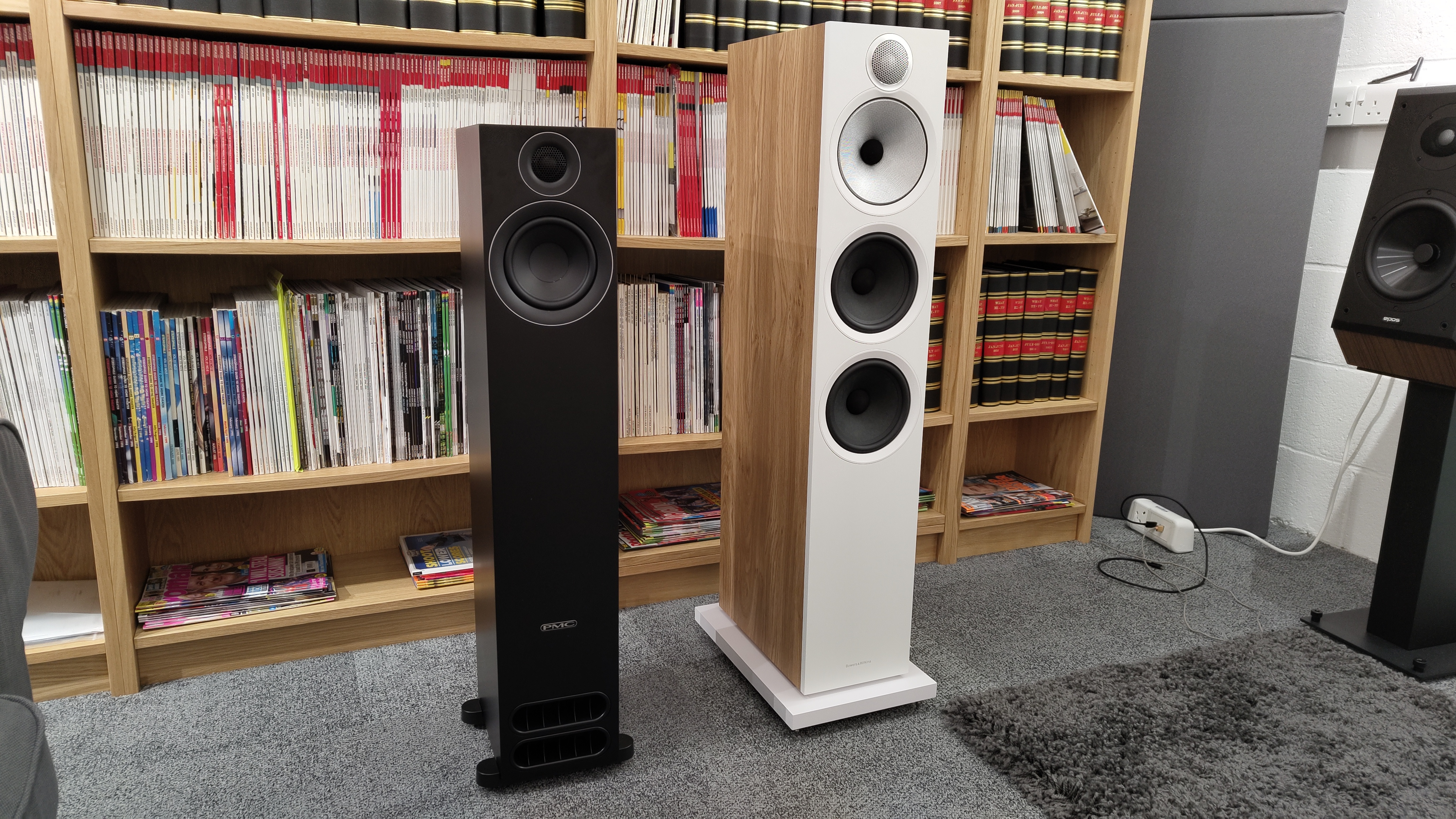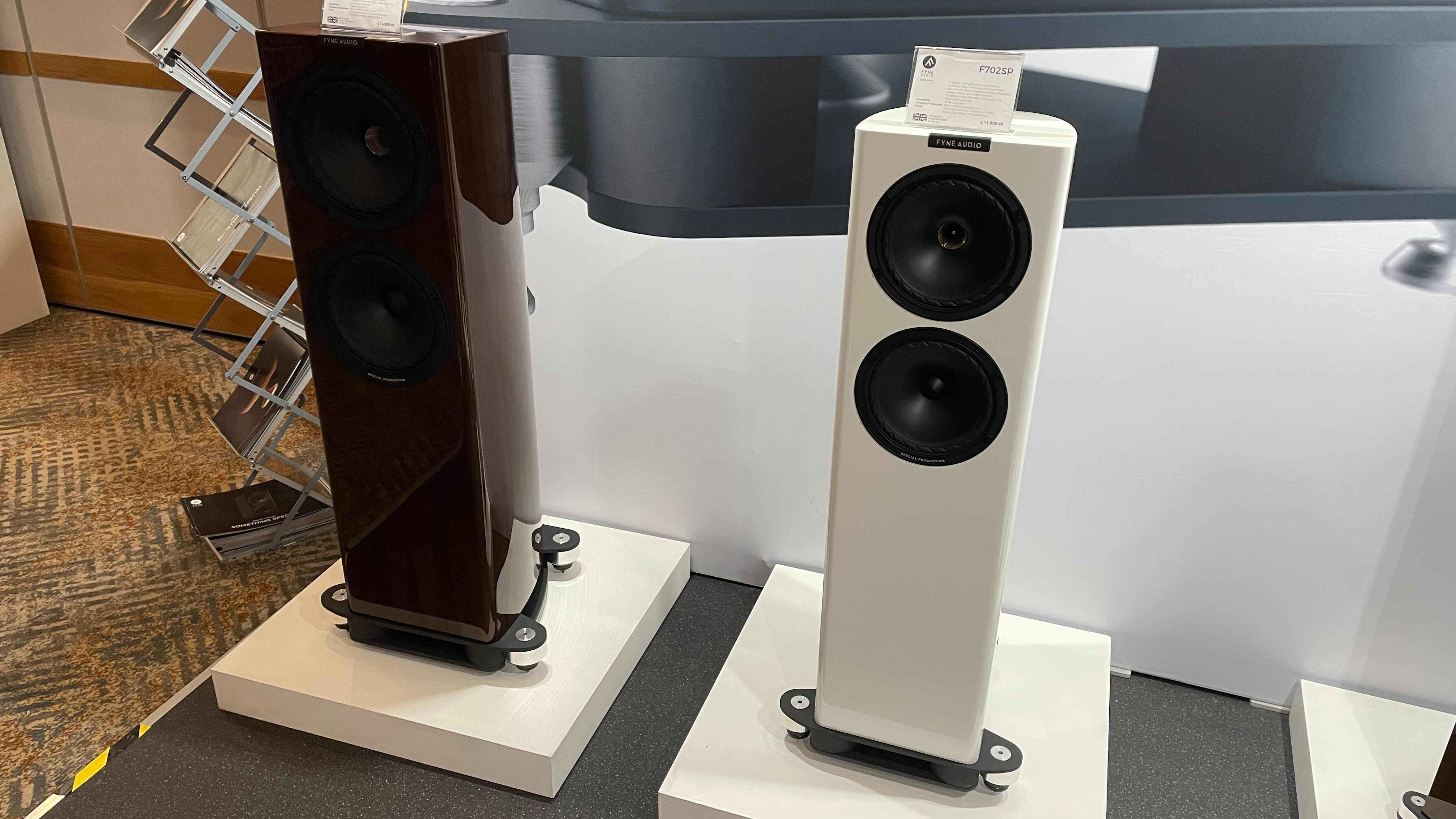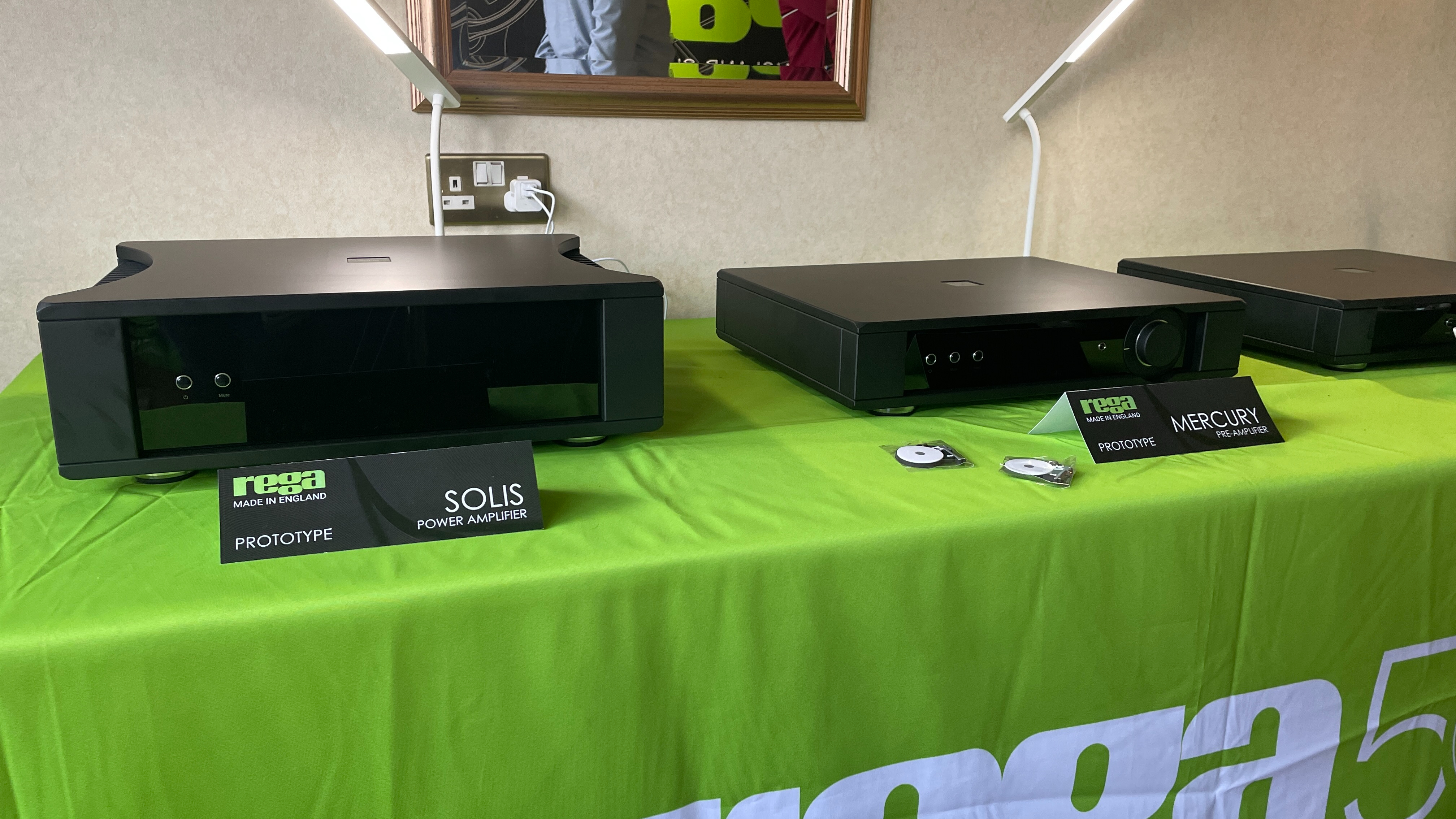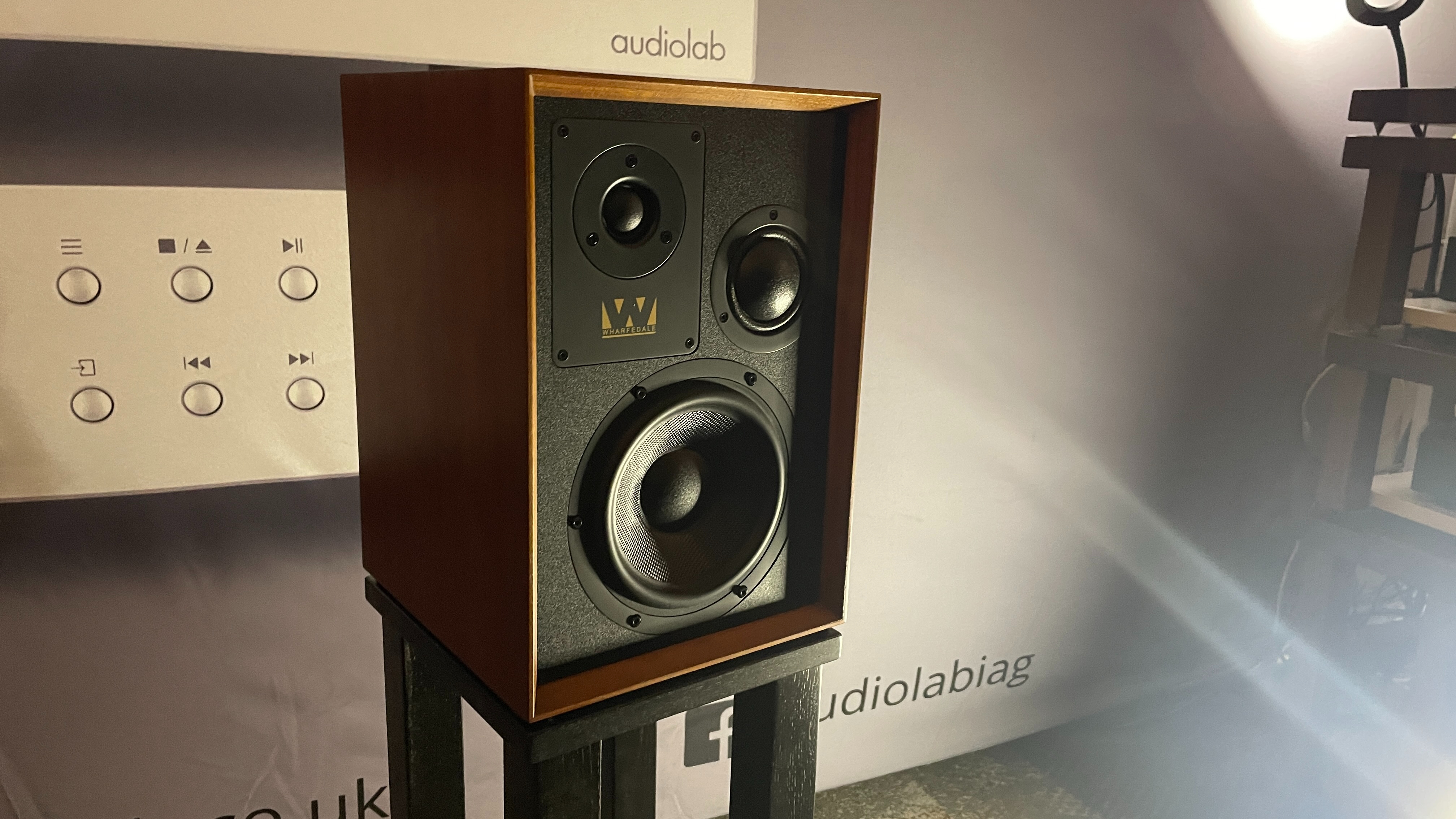
The idea of British hi-fi seems at once utterly natural and yet completely incongruous. Whereas once Britain led the way in the conception, design and manufacture of all things audio-related, our soggy little island feels increasingly dwarfed by the might of the economic superpowers in this ever-globalised, ever-homogenised world. To paraphrase a popular internet aphorism: “Being British seems to be about driving a German car to an Irish pub, then going home for an Indian curry to watch US shows on a Japanese TV”. Substitute “shows” for "music" and “TV” for “turntable”, and it would doubtless work just the same.
The true picture of Britain’s hi-fi scene though is, happily, a tad more complicated. There remain British-owned companies, though fewer in number than there used to be. You can count Chord Electronics, Fyne Audio, Linn, Rega, PMC and Wilson Benesch among them.
Admittedly, many brands have been forced to accept some degree of foreign ownership and/or stakeholdership, with many established UK names becoming amalgamated into wider overseas churches. The likes of Arcam, Audiolab, Bowers & Wilkins, KEF, Mission, Quad and Wharfedale are just a few obvious examples.
How, though, do these companies continue in this globalised, ever-competitive economy, and what does manufacturing and distribution look like for British companies in 2024? Most importantly of all: in this modern world, what does the term “British hi-fi” actually mean? With British Hi-Fi Week upon us and February’s Bristol Hi-Fi Show 2024 giving us the perfect time to chat with some of the industry’s leading lights, we seek to establish where British hi-fi came from, the current situation it's in and, crucially, where it’s headed.

What does it mean to be British these days?
What a British brand is, frankly, feels like a philosophical question as much as a categorical one, and an issue which can be as divisive as it is hard to define. Numerous brands simply trade on a British name while all manufacturing, development and assembly take place abroad, while others still have deep roots in Britain – Fyne, for instance, proudly has its factory located in Bellshill, Scotland. This isn’t the case for many brands which simply sport a familiar name and some Union Jack branding in a bid to entice consumers enamoured with the idea of traditional British engineering.
While there may be parts and components sourced from overseas (nothing comes for free), the idea of having a factory in this country is an important one, and Fyne isn't the only company where this is the case. PMC remains a proudly independent outfit without overseas ownership, whereas Wharfedale and Rega operate major factories in this country. That, naturally, is essential to Peter Comeau of AIG/Whardedale, as it’s something that consumers and buyers have come to demand: “They expect for (products) to be British, so they want to see ‘Made In England’ on the back,” he explains. “For our flagship products, it’s important that they’re made in the UK… so we try to source as much as we can (from Britain).” That includes crossovers and cabinets, and while there will inevitably be concessions, especially at the market’s lower end, consumers do seem willing to spend a little more for that British flavour.
What that flavour is, exactly, is an interesting question. For Peter, the “British sound” remains a huge, alluring selling point, and something that can be defined and quantified, at least to an extent: “It perhaps came out of the class of speakers that the BBC was producing, and even before that... the early products from Wharfedale defined a sound that was natural, realistic and brought instruments into your living room – that set British sound apart from the rest of the world.” Whereas America “majored on dynamics rather than the accuracy”, British sound set up a tradition for pure instrumental reproduction “which continues to this day”, explains Peter.
To an extent, PMC’s Oliver Thomas agrees, although he views things from a slightly more engineering-focused perspective. “If I were to generalise about British brands, it’s that the products never stray far from the core principles of audio engineering design that ensure the truthful, always accurate reproduction of audio is the key design goal. British sound is accurate and refined.” After listening to the Award-winning PMC Prodigy 5 floorstanders, we’d go so far as to say that it is indeed a refined, deeply musical sound those speakers produce.
Getting that distinctive profile comes not only from a somewhat unified sonic philosophy but also from the components and technologies used on these very shores. Rega is a prime example of British engineering at the cutting edge, as Simon Webster explains: "We have designers and manufacturers building on that heritage and pushing the boundaries with innovative designs. We've also benefited from strong press championing our industry and a vast network of experienced retailers." With a high-tech factory operating out of Southend, Rega feels like a collision of the traditional and the cutting-edge, harnessing CAD software, 3D printing and laser cutting alongside a team which assembles its products by hand. Combine that with a "British sound" that still carries weight and it's not hard to see why many domestic brands continue to survive and thrive.
Back to PMC's Oliver Thomas, and the picture is again one of innovation and advancement on a more intimate scale: "The higher quality through smaller scale manufacturing is important to our brand... We benefit from our investment in R&D and technology which ensure our products perform better than anything else out there. The UK has a fantastic engineering-based higher education system with enough heritage to tailor towards audio design specialities." As we'll see below, British engineering is still very much in demand.

Fool Britannia? The bonuses and burdens of Brexit
This all, inevitably, leads us to the big “B”. Whether you’re wilfully pro or despondently against, Brexit has had – and will continue to exert – a seismic influence on manufacturing and distribution, colouring every aspect of the UK’s relationship with foreign players and suppliers as a result of our island nation deciding to cut de jure ties with the single market.
The effect has been profound more generally, and the hi-fi sector hasn’t been immune, as Peter Comeau explains: “I am very disappointed that people voted to come out of the EU… I initially persuaded my parents [we should] join because we’re a tiny little island with not many people on it and we’ve got this huge market.” While international ownership and having EU-based distributors helps, it doesn’t remove the impact entirely. “If our distribution in Europe needs anything to come from our UK warehouse, that’s problematic,” he explains. There’s also that one issue that feels welcome to no one: “The paperwork is a nightmare!”
That said, Oliver Thomas asserts that PMC has been less hard hit than the casual onlooker might imagine. As he explains, “The initial impact from Brexit was positive for us, as we trade internationally, the immediate ‘drop’ in value of our GBP resulted in our export sales jumping up as customers enjoyed the exchange rate benefit.” Looking into the future, Oliver says, “I do not believe there have been wider more significant implications for our business, but that is mostly to compliment ourselves for being adaptable and versatile.”
In any case, Britain’s departure from the EU has made the country’s economic waters uncertain, and with what seems to be a lifetime of legislative red tape to sever, stick back together and then re-erect across new lines, answers relating to the question of how British industry will look in the long-term remain all but unanswerable. Stephen Oakes of Neat feels that in fact "there is not a proper manufacturing base in the UK, so sourcing components is not easy. There's little or no government support for specialist manufacturers, and Brexit has brought its own set of challenges".

The future of UK hi-fi
This, naturally, turns our conversation to the future of hi-fi. The last fifty or so years have seen a colossal shift in the ways that British companies have been run and even in how they have identified, with foreign investors and shareholders exerting influence to varying degrees across domestic brands. Where that leads us as new players emerge is an intriguing question. For PMC, there are benefits to being a medium-sized privately owned organisation, as while sourcing and logistics can be tricky, especially post-Brexit, such companies can "adapt to market changes quickly in a way that larger-scale manufacturing cannot".
It also throws up a more existential question of what it means for a brand to have a given national identity. If you source, manufacture and put together British parts in a British factory with a British name, you're a British brand. If you source components from foreign shores but assemble them in this country while retaining the power of your own directorship, it's likely the same story. The picture becomes foggier when things are split somewhere down the middle, where directorship is foreign but construction takes place domestically, or when parts are developed abroad but put together in the UK. Toyota pumps out countless cars in the UK from a major site in Derbyshire, but nobody's suggesting that Toyota isn't a Japanese company.
What’s clear, however, is how much weight the idea of British hi-fi still carries. As Peter Comeau of Wharfedale emphatically points out, Chinese markets have always been willing to pay a bit extra for a product with the Union Jack positioned somewhere upon its cabinet or marketing bumph. No matter how good countries like China, Japan or South Korea become at manufacturing and engineering, there still exists an admiration for the idea of British engineering, innovation and design. “British sound is known internationally,” he asserts, and adds that that still carries significant weight.
Perhaps that’s enough. For Oliver Thomas, the future of British hi-fi is all about education and the public’s perception of the industry. The problem, as he sees it, is not that Britain has a shortage of ingenuity or acumen, but rather that it is in danger of suffering from an internal image crisis which prevents younger participants, particularly young women, from getting involved in the first place.
Events such as the Bristol Hi-Fi Show are all well and good, but they could be in danger of pandering to an established crowd rather than, as he suggests (perhaps only half in jest), “Where are the smoke machines?” On a more serious note, his suggestions for the future are robustly optimistic: "We should look to our own investment in the future," he says. "We should be confident we will innovate and develop world-leading products with world-leading engineering." This, he goes on to add, should be built on a foundation of education and a healthy skill base.
British hi-fi manufacturing is not a remnant of the past, nor is it merely an idea to which brands cling in a bid to sell more speakers at inflated rates. Whether it’s PMC’s meticulous development of speakers via its forensic use of domestic anechoic chambers or Rega’s blending of machine-rendered and handmade production within the walls of its Southend factory, much homegrown research, construction and development remain just that: homegrown. Here's hoping that continues.
MORE:
What Hi-Fi? unveils plans for British Hi-Fi Week 2024!







